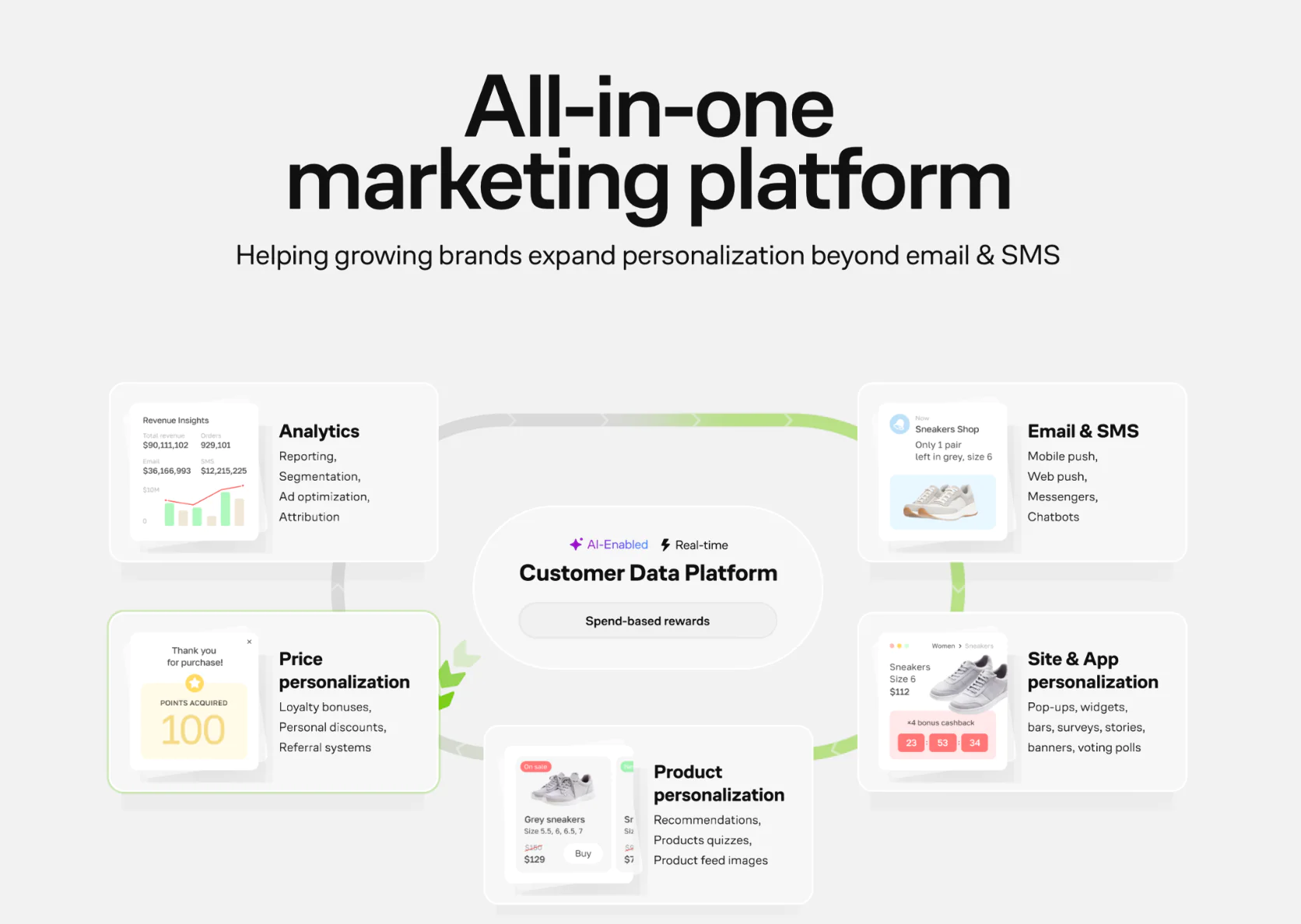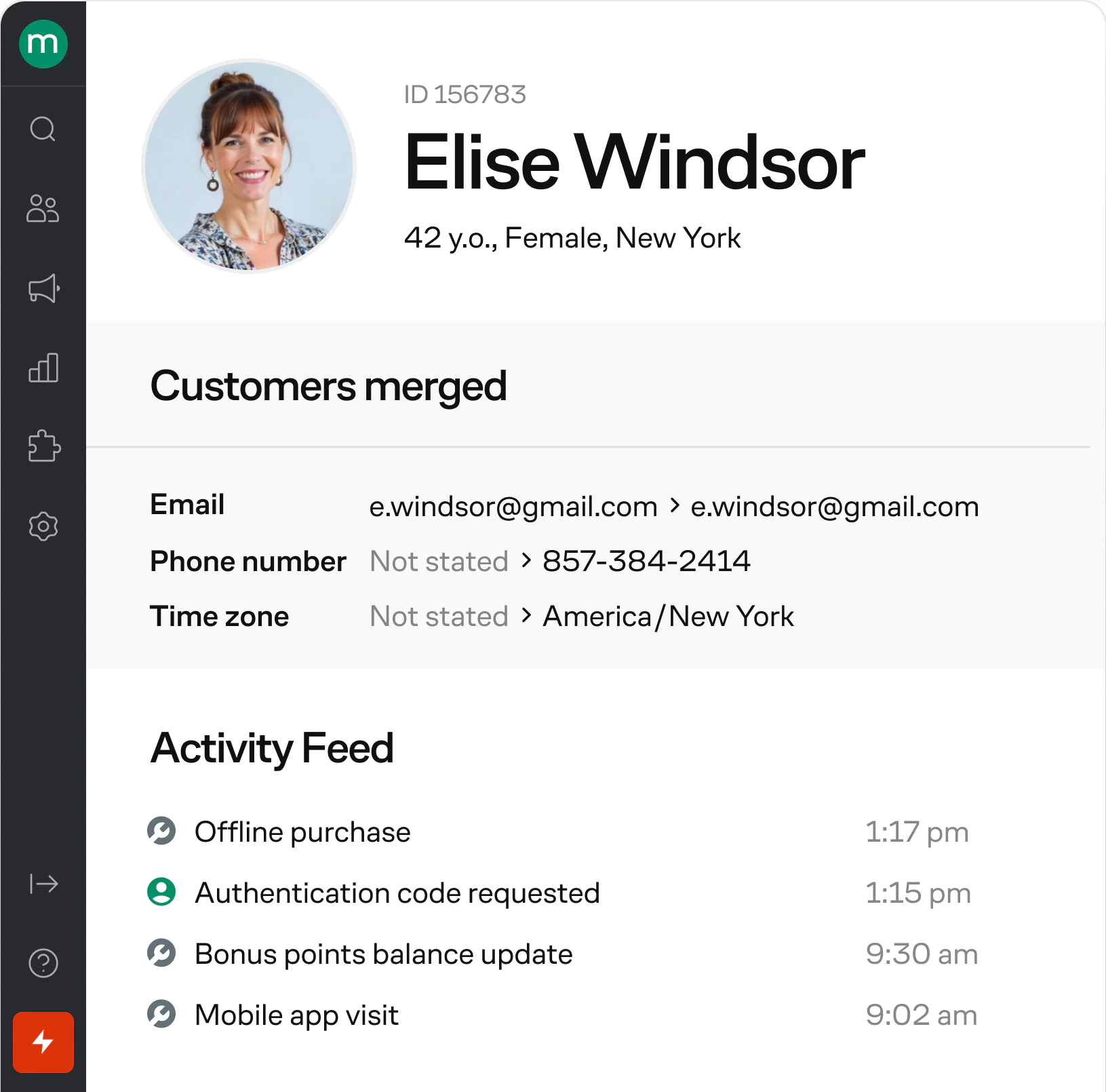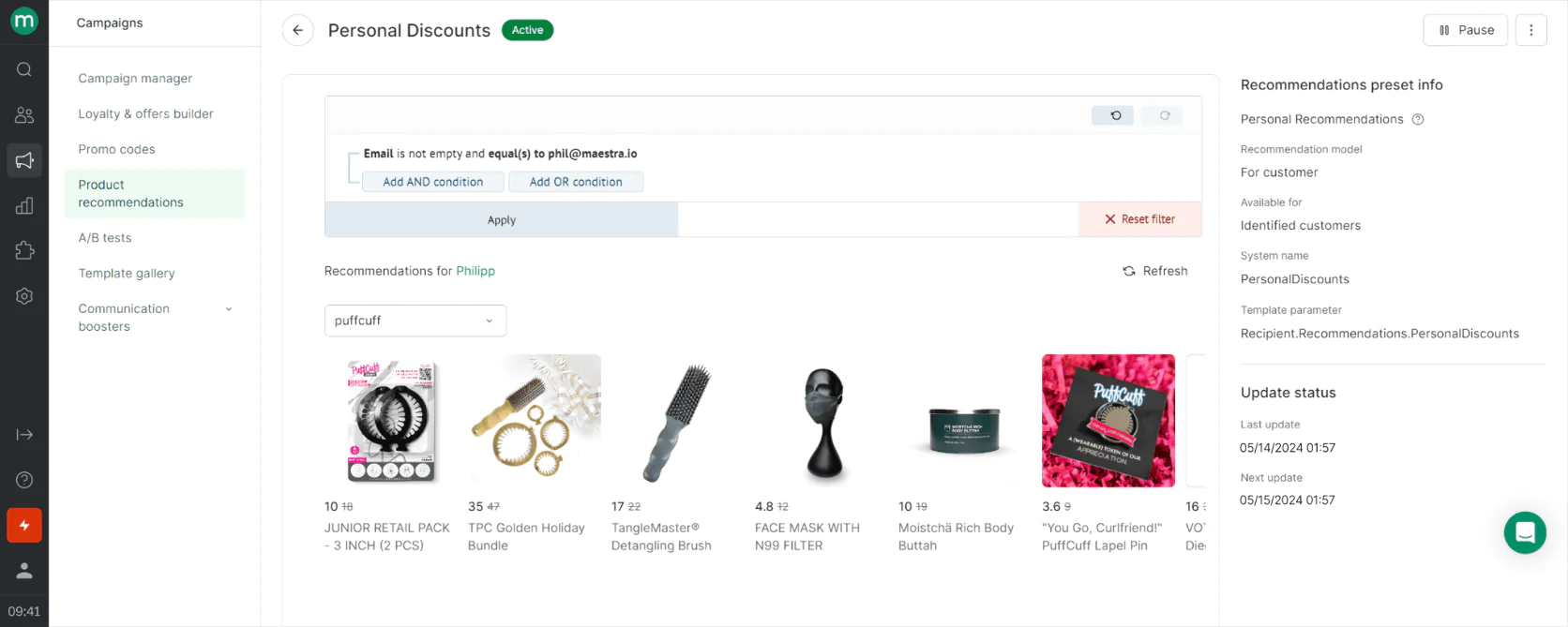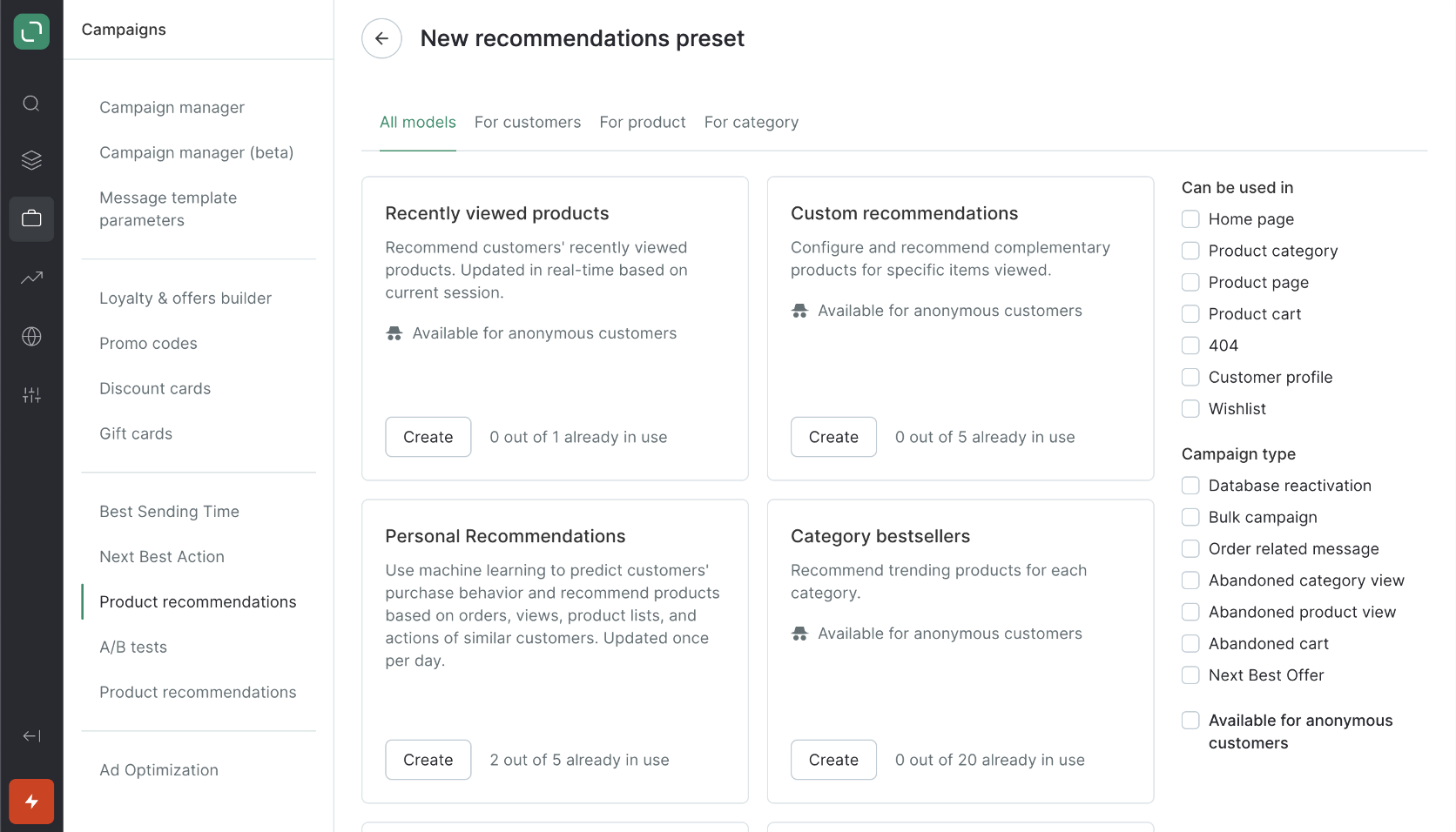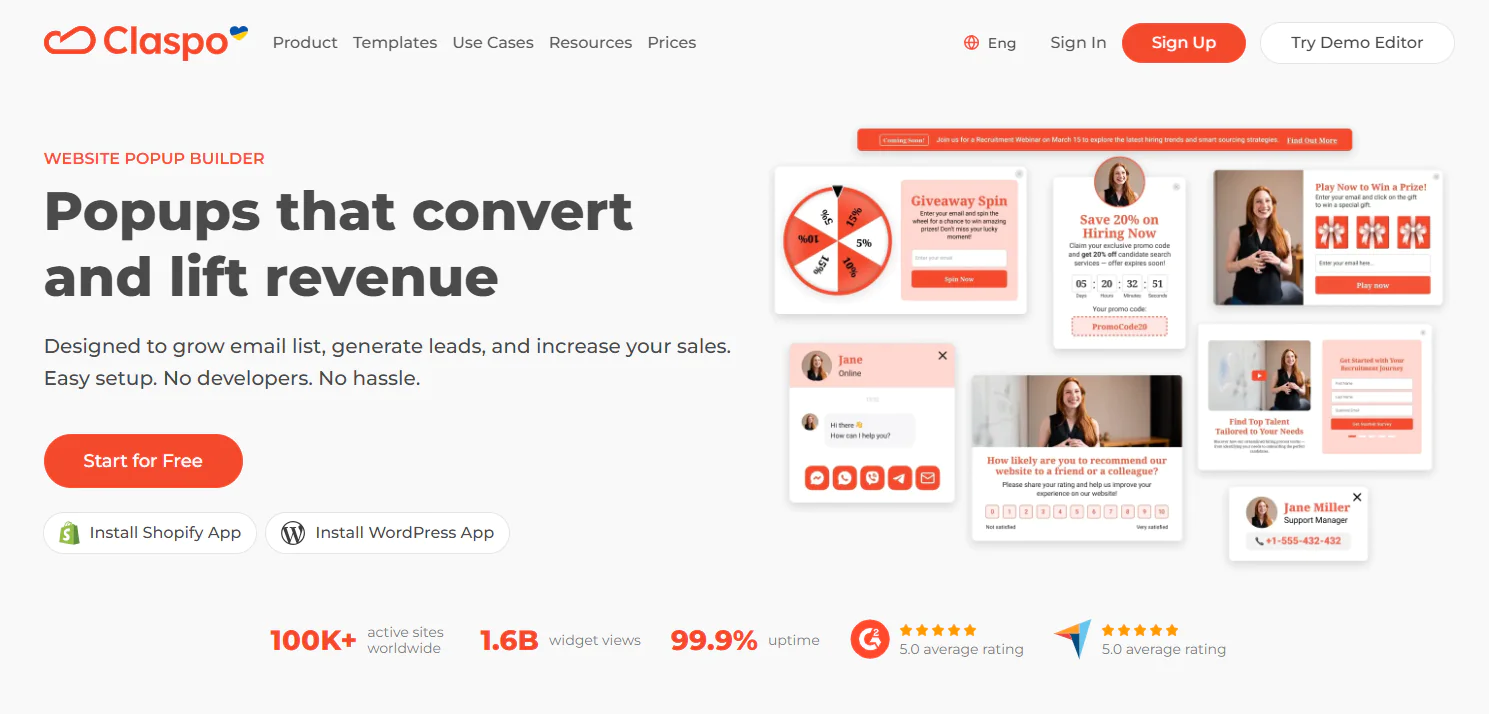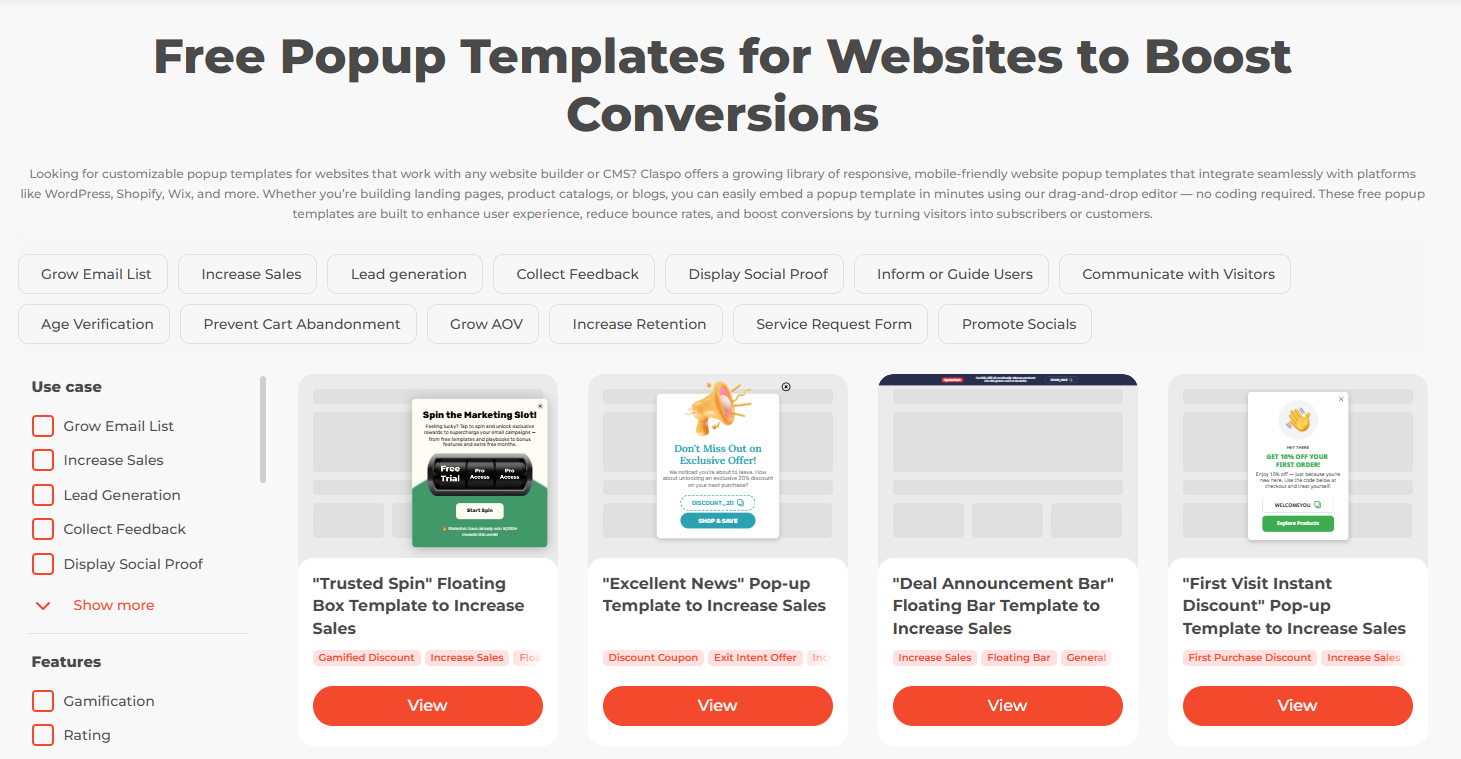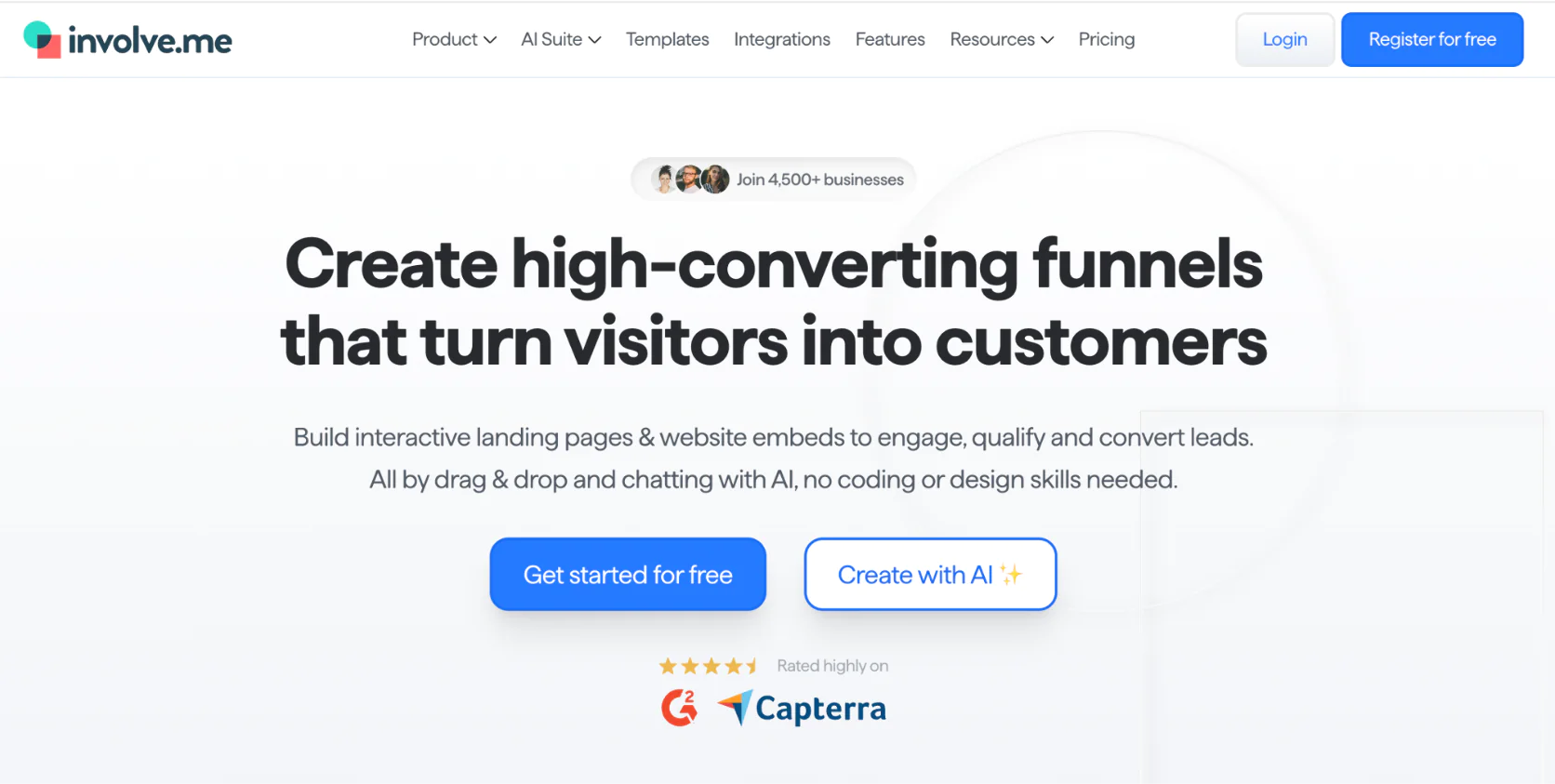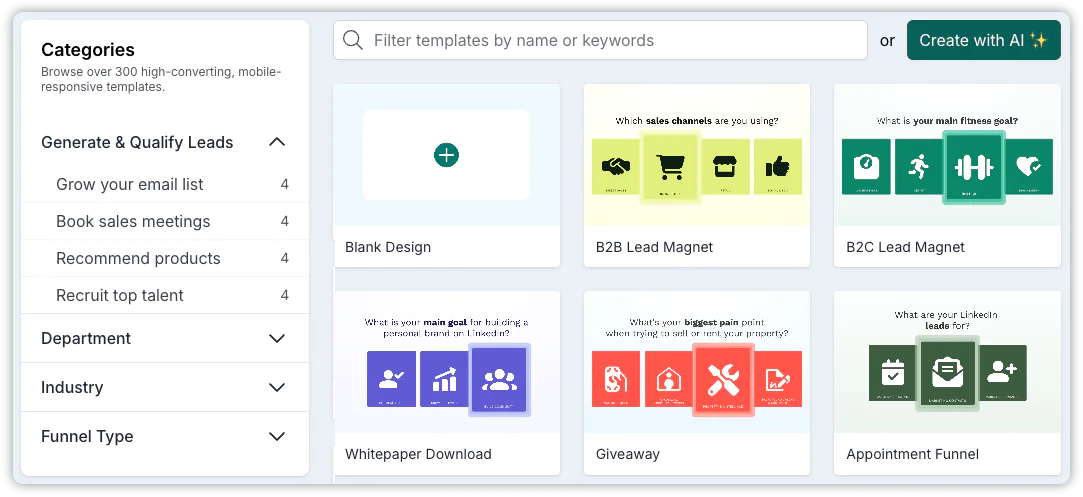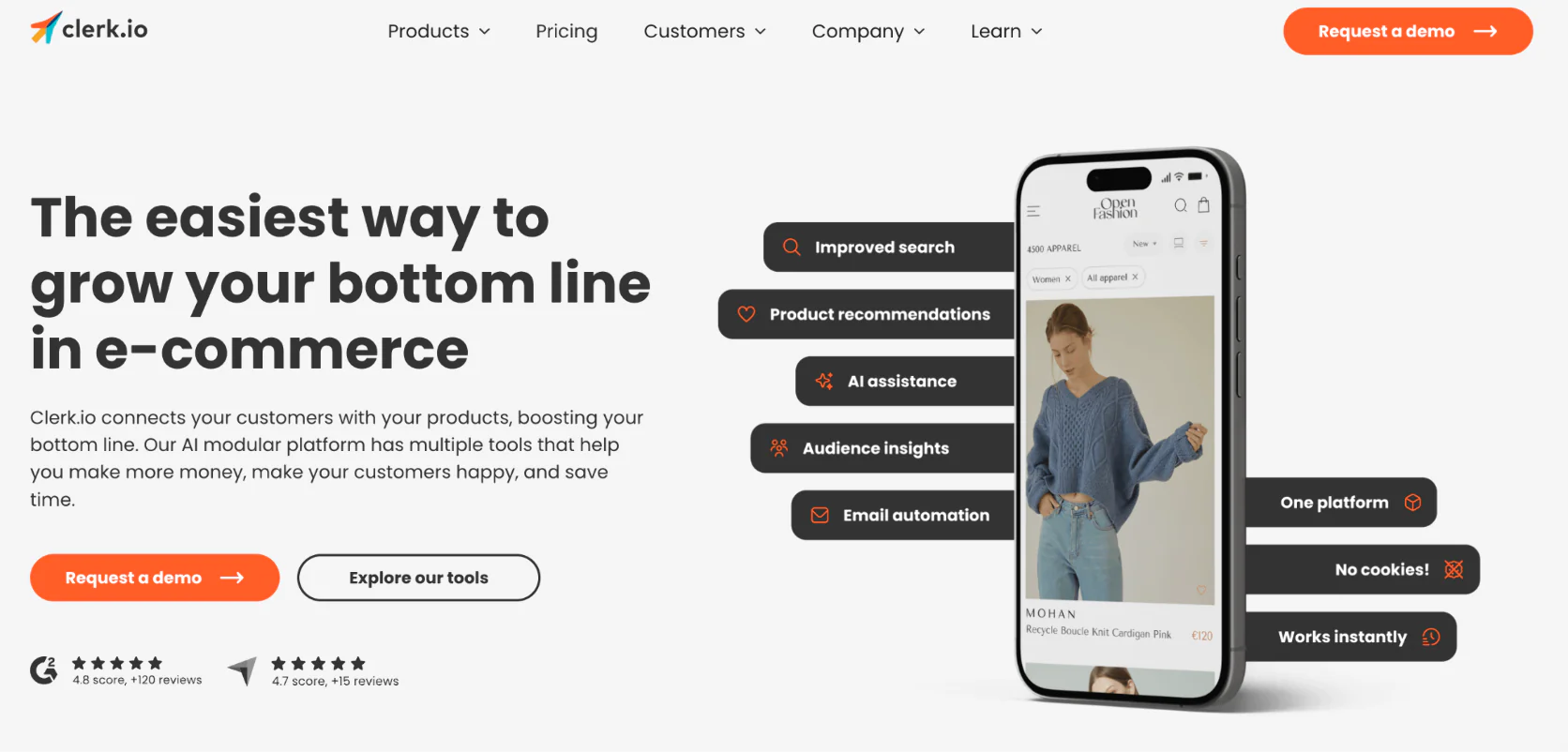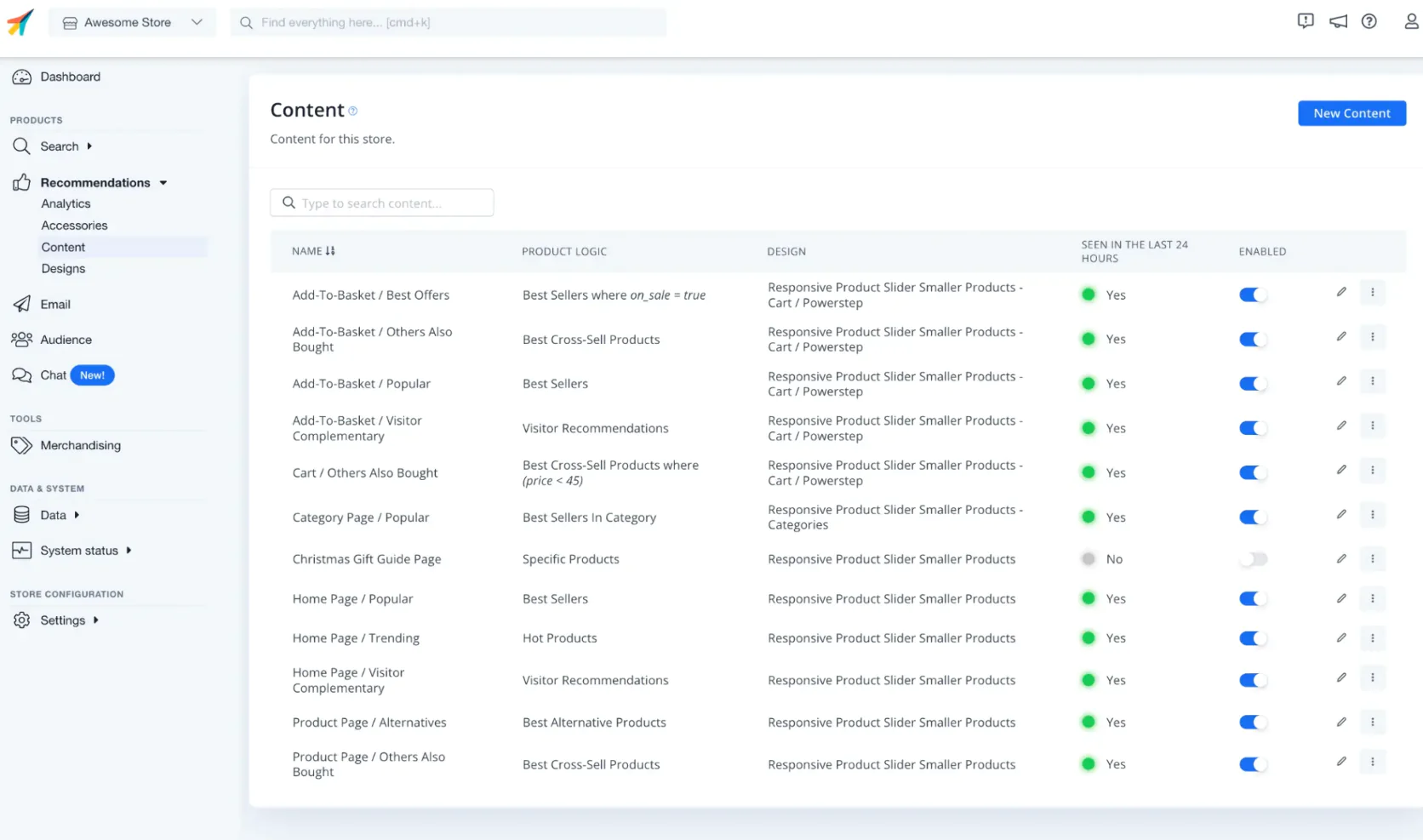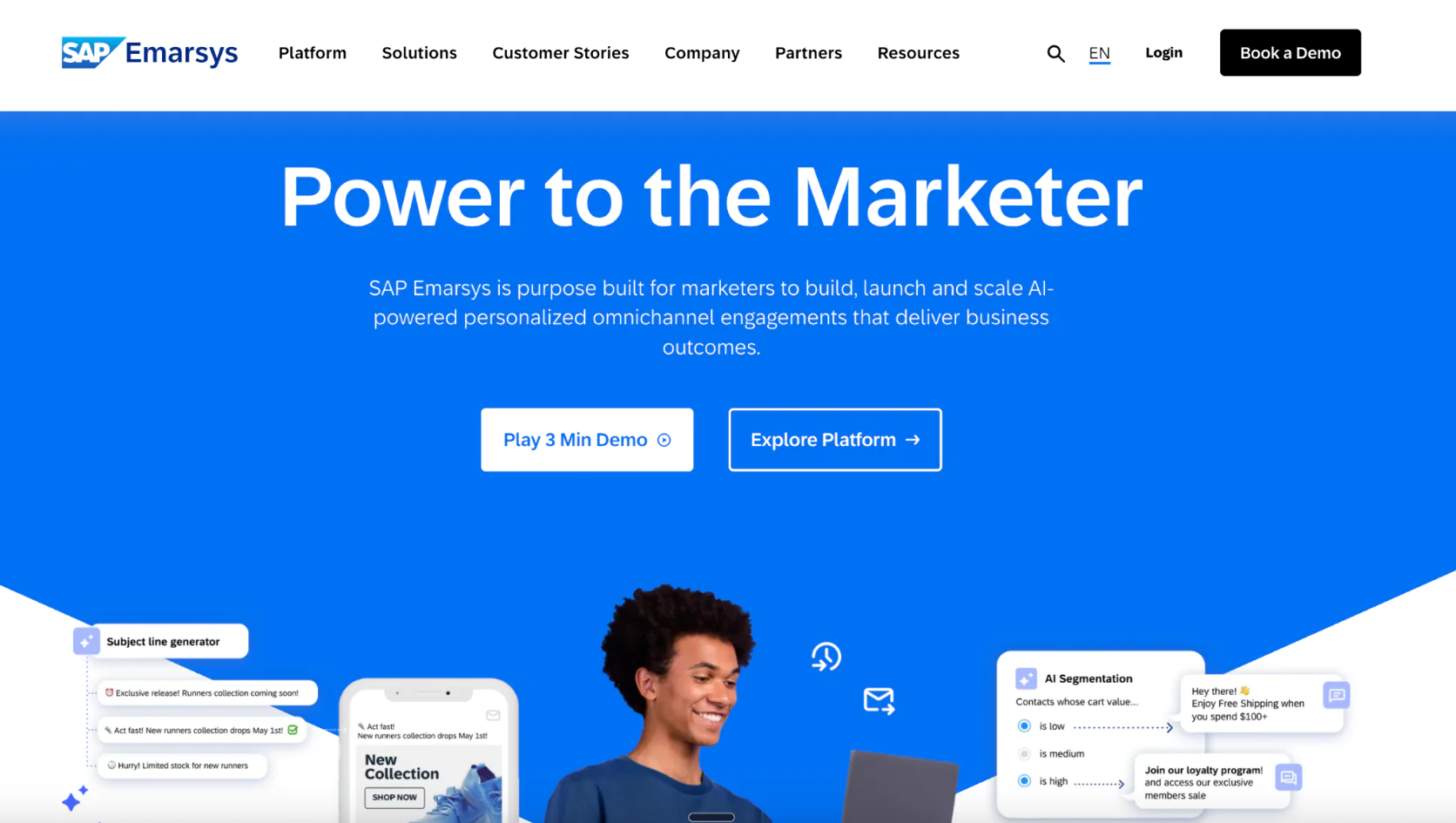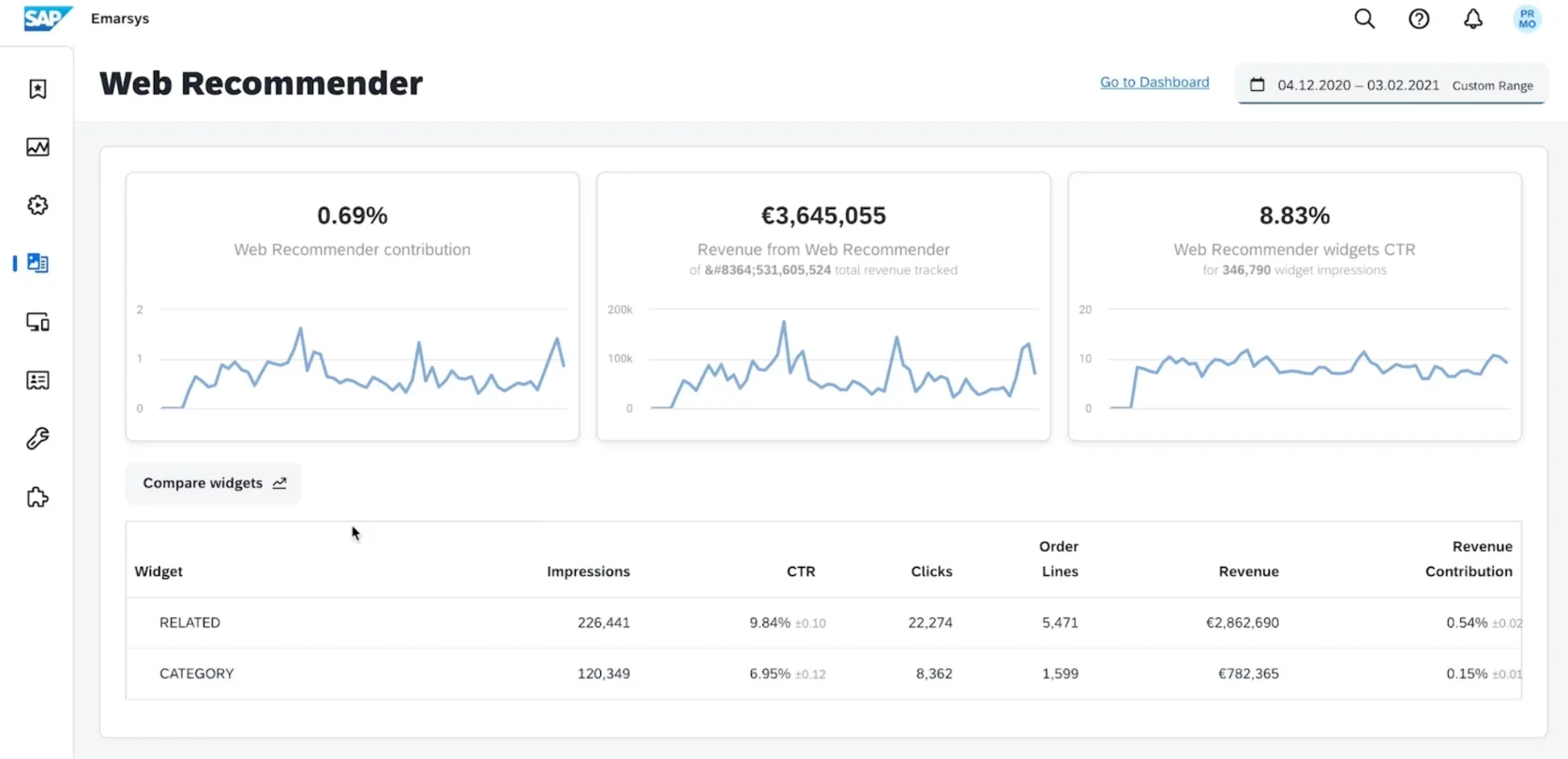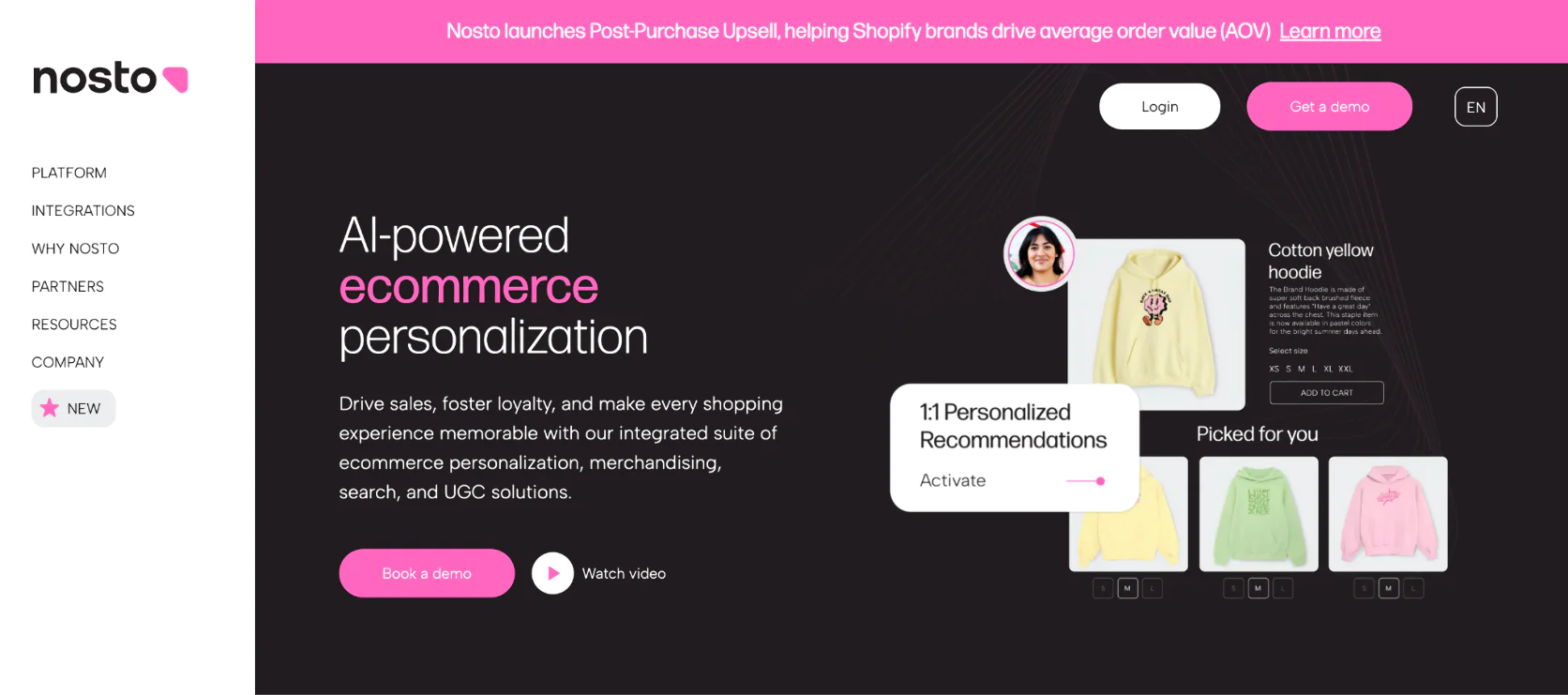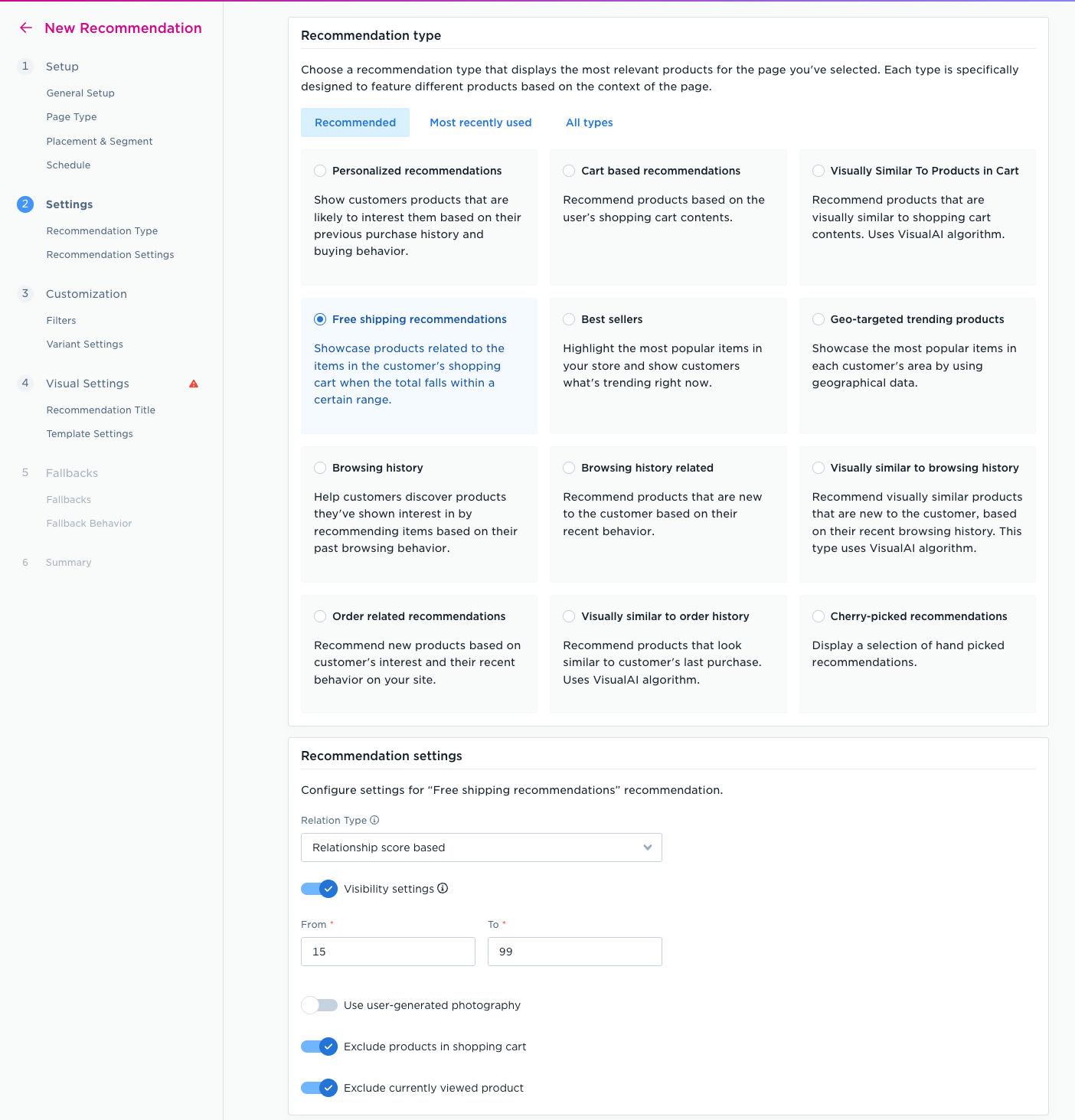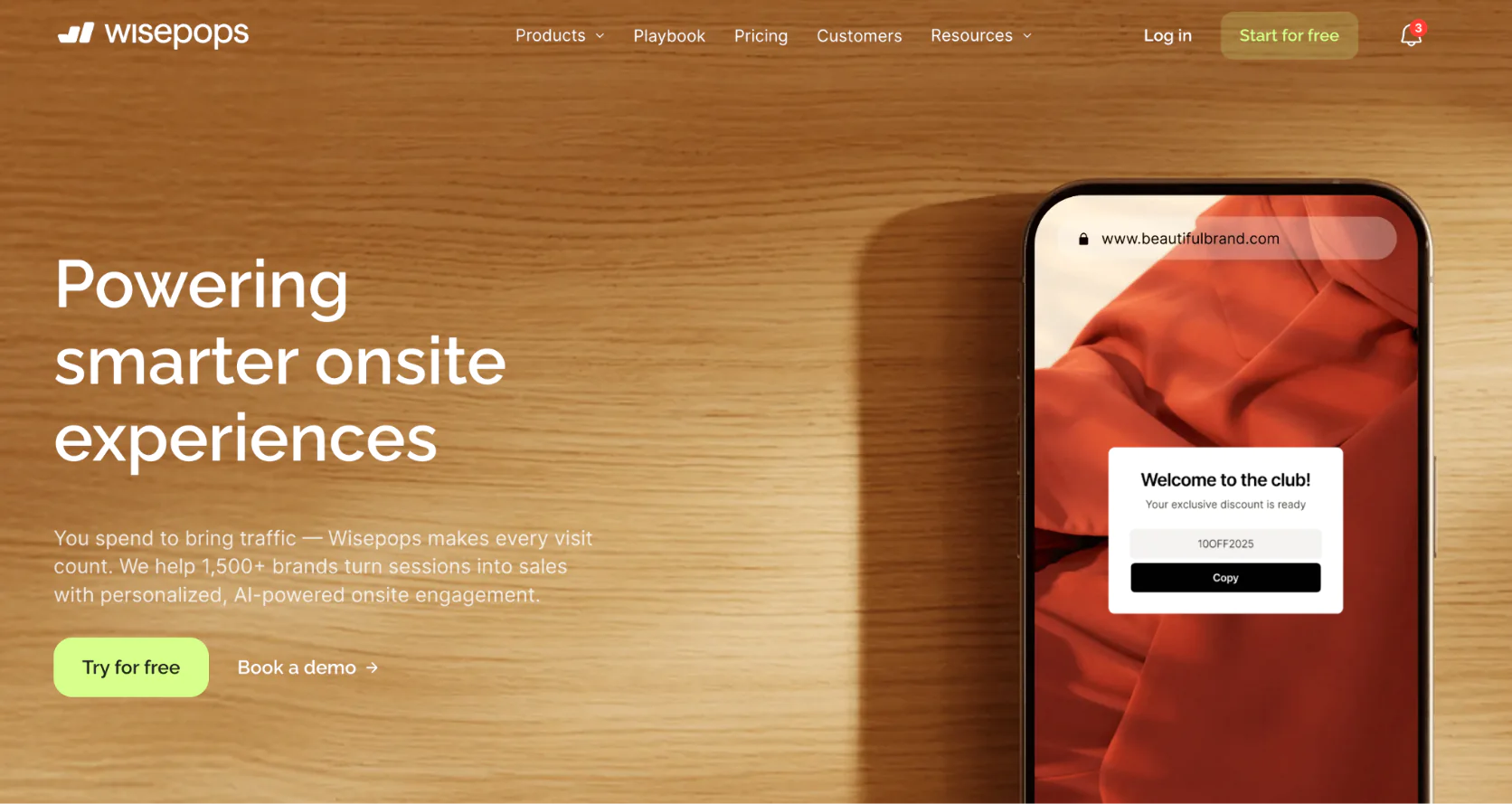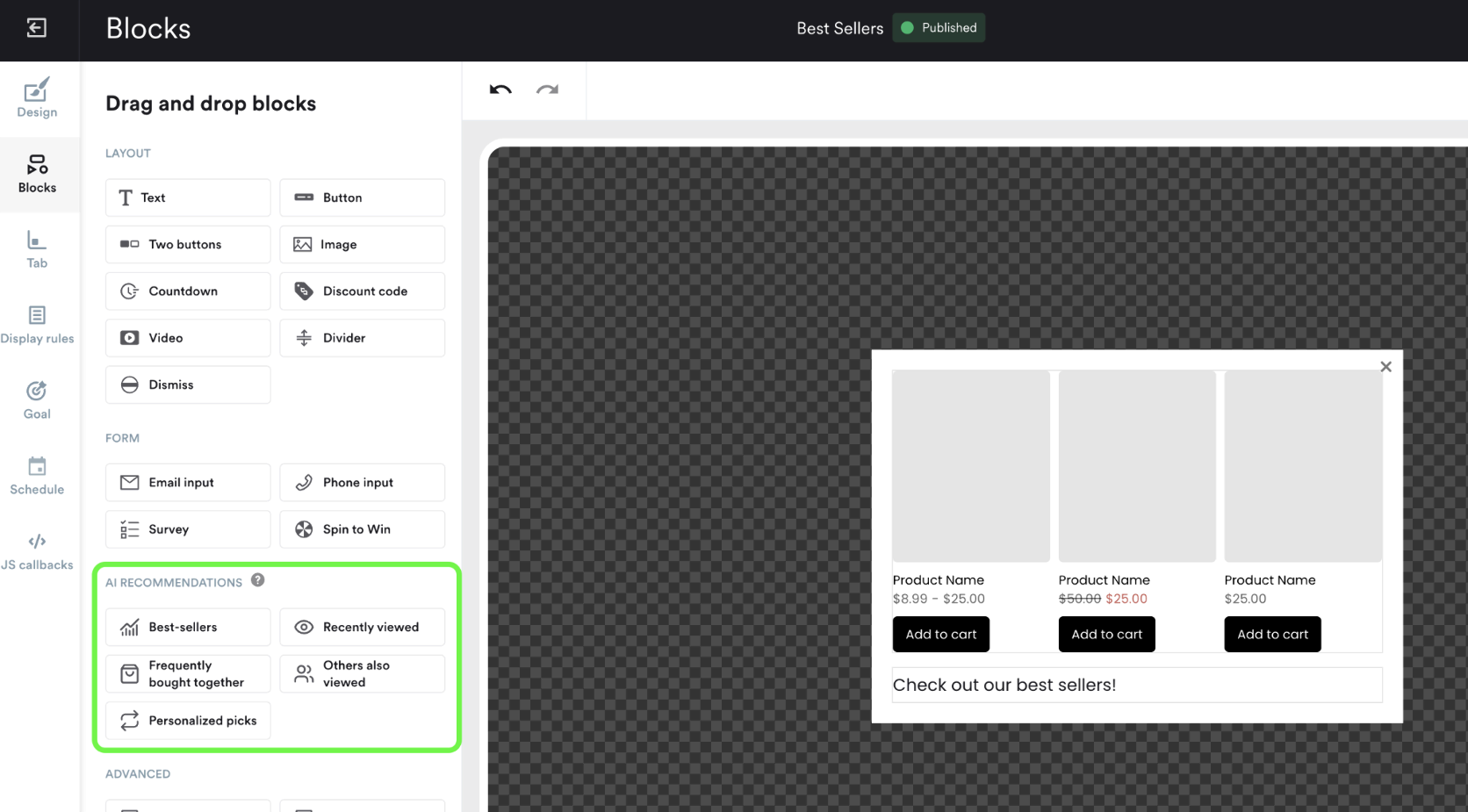8 Best Product Recommendation Tools That Boost Sales (Updated Guide)
Statistics show that product recommendation tools boost customer purchases by 28% beyond their original shopping intentions.
The digital world demands personalization as a core business requirement. Sophisticated recommendation engines help shoppers convert more than average store users and create customized experiences that keep visitors on site longer.
Product recommendation software works well across all customer segments. The software serves relevant content to everyone — new visitors and loyal brand promoters alike. This targeted approach shows customers that businesses understand their unique needs.
This piece gets into the 8 best product recommendation tools you can use. These tools will help you turn browsers into buyers and boost your sales numbers.
How to Choose a Product Recommendation Tool
Choosing the right product recommendation tool needs careful thought about several factors that affect how well it works for your business.
Step 1: Define Your Business Objectives
Start by establishing specific, measurable goals for your recommendation system. Are you primarily looking to increase average order value by 15-25%, boost conversion rates by 10-30%, or move slow-selling inventory that’s been stagnant for over 90 days? Document these objectives with target metrics and timelines. For example, "Increase cross-sell revenue by 20% within six months" or "Increase AOV by 15% in a month." Clear goals will guide every subsequent decision and help you evaluate ROI accurately.
Step 2: Assess Your Data Infrastructure and Volume
Evaluate your current data ecosystem before selecting any tool. Catalog what customer data you collect: browsing patterns, purchase history, search queries, demographic information, and product interaction data. High-performing recommendation engines require significant volume of transactions and product interactions to generate meaningful insights.
Step 3: Match Tool Complexity to Your Business Scale
Choose a solution that aligns with your operational complexity and growth trajectory. Enterprise retailers with +10,000 SKUs and multi-million dollar revenues need robust platforms that handle real-time personalization across multiple touchpoints. Mid-market businesses ($1M-$10M revenue) usually consider tools that balance functionality with ease of implementation. Small businesses benefit from plug-and-play solutions like built-in Shopify features.
Step 4: Evaluate Integration Capabilities
Audit your existing technology stack and map out required integrations before making any commitments. Your recommendation tool must connect seamlessly with your e-commerce platform, email marketing system, CRM, and analytics tools. Request detailed integration documentation and ask vendors about API limitations, data sync frequency, and any middleware requirements. Poor integrations create data silos that undermine recommendation accuracy.
Step 5: Test Performance and Load Times
Implement a technical evaluation focusing on speed and reliability. Request a demo environment where you can test recommendation load times with your actual product catalog size. Recommendations must appear within 200 milliseconds to avoid impacting user experience — anything over 2 seconds significantly increases bounce rates. Test the system during peak traffic periods and verify it can handle your maximum concurrent users without degrading performance.
Step 6: Examine Analytics and Testing Capabilities
Prioritize platforms that offer comprehensive measurement and optimization tools. Essential analytics include conversion rates from recommended products, revenue attribution, click-through rates on recommendations, and impact on average order value. The platform should support A/B testing functionality, allowing you to compare different recommendation algorithms, placement strategies, and display formats. Look for tools that provide cohort analysis to track long-term customer behavior changes.
Step 7: Optimize Your Product Catalog Structure
Prepare your product data for maximum recommendation effectiveness before implementation. Ensure your catalog includes detailed attributes: categories, subcategories, price ranges, seasonal indicators, and cross-sell compatibility. Products should have consistent tagging for color, size, material, and use cases. The more granular your product classification, the more precise your recommendations become. Plan to spend 2-4 weeks cleaning and structuring your catalog data.
Step 8: Select Industry-Specific Features
Choose functionality that matches your product type and customer shopping behavior. Fashion retailers need visual similarity algorithms and outfit completion suggestions. Electronics stores require compatibility-based recommendations and technical specification matching. Beauty brands should prioritize ingredient-based filtering. Ensure the tool’s core algorithms align with how your customers naturally discover and evaluate products.
Step 9: Calculate Total Cost of Ownership
Analyze pricing models beyond the base subscription fee to understand true costs. Some providers charge per recommendation view (typically $0.01-$0.05), others bill based on generated revenue (1-3% commission), and many offer fixed monthly rates ($100-$+5,000 depending on features). Factor in implementation costs, additional integration fees, and required staff training time. Industry benchmarks suggest aiming for a 20-30x return on investment within the first year of implementation.
Step 10: Configure Business Rules and Customization
Establish the balance between algorithmic automation and manual control that fits your merchandising strategy. Define rules for promoting high-margin products, featuring new arrivals, clearing seasonal inventory, and avoiding out-of-stock recommendations. Set up exclusion rules to prevent suggesting competing products or inappropriate cross-sells. Plan customization for different customer segments, seasonal campaigns, and promotional periods. The most effective implementations combine machine learning insights with strategic business logic to drive both customer satisfaction and profitability.
Comparison Table of Product Recommendation Tools
All-in-one marketing automation
14 AI algorithms, product-picking quizzes, bundles, real-time CDP, 150 integrations, white-glove support
Email marketing, SMS, loyalty programs, website personalization, customer segmentation
Claspo
Product recommendations widgets
Free, $29/month
No-code popup builder, strong targeting capabilities, ready-made templates, lightweight scripts
Lead capture, exit intent, and gamified popups, built-in A/B testing
Enterprise SEO + recommendations
Custom pricing (enterprise-level)
Hybrid ML algorithms, automated testing, enterprise scalability
SEO landing pages, automated internal linking, conversion optimization
Interactive product discovery
Quiz-based recommendations, +350 templates, AI quiz builder
Lead generation, interactive content, funnel building, payment processing
Cookieless AI personalization
Cookieless technology, 20 recommendation logics, immediate deployment
Search optimization, email marketing, audience segmentation, customer support chat
Enterprise omnichannel engagement
Predict AI engine, 15 recommendation types, GPT-4 integration
Omnichannel campaigns, predictive analytics, customer journey automation, enterprise integrations
Commerce experience platform
2.5-4% of generated sales
experience.AI™ engine, visual AI, 7 years ecommerce training
Business intelligence, audience insights, A/B testing, merchandising tools
Onsite conversion optimization
$99/month (50K pageviews)
6 recommendation strategies, purchase intent AI, popup optimization
Pop-up campaigns, exit-intent triggers, conversion rate optimization, A/B testing
Maestra is a complete marketing platform built for DTC brands that want to boost conversions through tailored recommendations. The platform combines customer data, site personalization, and AI-powered product suggestions into one system, unlike basic recommendation engines.
Maestra’s product recommendation engine works through a sophisticated Customer Data Platform (CDP) that brings together data from multiple sources. In fact, one client combined website interactions, mobile app activity, and offline store purchases to build complete customer profiles for better recommendations.
Customer profile in Maestra
This approach lets marketers create tailored recommendations based on the customer’s full experience rather than single touchpoints. Maestra offers a wide range of ready-to-use recommendation engines:
Recently browsed products
Products similar to recently browsed products
Bestsellers
Category bestsellers
Bestsellers from previously viewed categories
Post-purchase cross-sell
Custom post-purchase recommendations
Personal recommendations
Event-based personal recommendations
Related products
Often purchased with Items in product list
Similar products
Similar products to product list recommendations
You can also create custom recommendations rules tailored to your business needs.
Personal product recommendations in Maestra
The platform’s AI-powered system places product suggestions at key site locations. The quality of recommendations improves as Maestra uses various data signals:
Ratings and reviews
Promotional details
Product attributes like color, size, and type
Maestra’s product recommendation presets
Beyond standard recommendations, Maestra has specialized product quizzes that help customers find items matching their priorities and needs. Speaking about results, it helped Blossom Flower Delivery increase website conversion by 14%.
Retailers worried about inventory management will find Maestra’s specialized upsell features valuable. For example, an upsell bar showed a 38% AOV increase by smartly encouraging customers to add items to their cart.
If a customer has only three items worth $82 in their cart, the up-sell bar suggests adding $12 more to qualify for free shipping
Maestra uses a monthly subscription model without long-term commitments. This is a big deal as it means that while the investment is substantial, you won’t pay extra setup and onboarding fees since migration and implementation services come at no additional cost.
The subscriptions include:
Customer Data Platform with live processing
Email, SMS, MMS, and additional messaging channels
Site and app personalization tools (embedded blocks, pop-ups, banners, etc.)
Product recommendation engine
Price personalization capabilities (loyalty and referral programs, promotions)
Complete analytics
Maestra makes white-glove service central to its offering. Clients get complete support throughout the implementation process, including:
Full data and flow migration assistance
Campaign asset transfer from previous platforms
Third-party tool integration
Email, site, and feed design implementation
Deliverability setup
Flow and segment configuration
A/B testing implementation
Each client works with their own Customer Success Manager (CSM) who handles all integration setups. This hands-on approach helps Maestra clients achieve significant results within just a few months after implementation.
Works as an all-in-one "plug-and-play" SEO service with custom pages
Setup might be tricky depending on your platform
Shows strong traffic results from day one with proper setup
You’ll need company help to build templates
Creates landing pages with buyer-intent keywords quickly
Switching away requires a solid redirect plan
Uses automated internal linking to boost SEO results
Shows detailed performance metrics
Customer feedback shows Verbolia works best for businesses that want to improve both organic traffic and paid conversion rates across their e-commerce platforms.
Claspo is a no-code popup builder that helps businesses capture leads, reduce friction, guide visitors toward featured or high-margin products, and lift conversions at key decision moments across the site. It’s built around behavior-based popups that respond to real-time user intent, while staying lightweight and not dragging down page speed.
Claspo goes beyond basic popups and recommendation widgets by combining flexible display logic, ready-made templates, and advanced targeting in one lightweight platform. It’s built for marketers who want precise control over when and how messages appear without relying on developers.
Popup Builder: Create exit-intent popups, welcome offers, discount banners, lead capture forms, social proof notifications, and floating widgets using a visual, no-code editor.
Advanced Targeting and Triggers: Show popups based on exit intent, scroll depth, time on page, referral source, device type, traffic channel, or user behavior.
Template Library: Launch campaigns faster with pre-built templates for lead generation, promotions, announcements, and ecommerce use cases.
Smart Personalization: Tailor messages using page context, visitor behavior, and audience segments to keep popups relevant rather than intrusive.
A/B Testing: Test popup designs, copy, and triggers to identify the highest-converting variant and optimize performance over time.
Integrations: Connect Claspo with email marketing platforms, CRMs, and automation tools to sync leads and trigger follow-up workflows.
The Free plan includes everything you need to launch and manage on-site campaigns fast. It provides full access to Claspo’s popup features, which makes it ideal for early-stage projects and large-scale testing.Paid plans scale based on your monthly pageviews and start at $29/month, unlocking higher traffic limits, the full platform experience, and removal of Claspo branding.
Claspo provides onboarding resources, a knowledge base with step-by-step guides, and responsive customer support to help users launch and optimize campaigns efficiently.
No-code builder with strong targeting capabilities
Focused on on-site widgets rather than full automation
Ready-made templates for fast campaign launch
Design flexibility may depend on selected templates
Lightweight scripts that don’t impact site speed
Built-in A/B testing for conversion optimization
Suitable for ecommerce and content-driven websites
Involve.me stands out from enterprise-focused competitors with its unique approach to product recommendations through interactive quizzes that guide customers to ideal products. This code-free platform helps businesses create customized shopping experiences that resonate with their customers.
The platform’s core is a no-code quiz builder that creates product recommendation funnels without technical expertise. Businesses can build embeddable quizzes to explain products and help customers understand why specific offerings match their needs. The tool comes with:
AI-powered quiz generation that creates customized projects by integrating branding from a website URL
Custom options that deliver individual responses and feedback
Visual drag-and-drop editor with over 350 design templates
Multiple deployment options including website embeds, pop-ups, and landing pages
Integration with popular CRMs and email marketing tools
The AI reporting feature creates summaries, key findings, and recommendations from collected data in seconds, which saves hours of manual analysis.
Funnel creation in Involve.me
The platform’s pricing structure offers both monthly and annual payment options:
Basic: $29/month (annual billing) — Perfect for freelancers and creators, with 5 live funnels, single-user access, participant emails, and conditional logic
Pro: $59/month (annual billing) — Suited for small businesses, with 15 live funnels, 3 users, watermark removal, and detailed analytics
Business: $129/month (annual billing) — Built for medium-sized businesses, with 30 live funnels, 5 users, A/B testing, custom CSS, and webhooks
Enterprise: Custom pricing — Tailored for larger companies, with custom funnel and user limits, single sign-on, security assessment, and dedicated onboarding
Every plan comes with landing pages, embeds, pop-ups, theme customization, and SSL encryption.
The platform’s self-service model comes with comprehensive support resources. Users can start with a free account that provides access to all free features up to 50 submissions or 500 visits monthly. New users can explore paid features on draft projects before subscribing.
The platform provides help documentation and direct team contact for questions about pricing or features.
User-friendly interface without coding requirements
Projects with paid features lock when monthly submission limits are reached without an upgrade
Simple setup with smooth website integration
Setup might take longer than automated recommendation engines
Flexible deployment options (embeds, pop-ups, landing pages)
AI-powered analytics that provide analytical insights
Payment integration capabilities for direct sales through quizzes
Clerk.io helps e-commerce businesses connect customers with products through AI-driven personalization. The product recommendation engine lifts shopping experiences by analyzing customer behavior and priorities to deliver tailored suggestions that increase conversion rates.
The platform’s recommendation system uses over 20 different recommendation logics to help shoppers find what they need. Here are the main recommendation types:
Best Sellers — Shows items that sell most consistently over time
Hot Products — Emphasizes items gaining popularity
Visitor Recommendations — Displays relevant items based on click history
Best Alternatives — Shows similar products when items are viewed
Most Sold With — Boosts sales by grouping commonly purchased items together
The platform starts working right after installation without any learning period. It makes use of existing buyer history and advanced AI algorithms to optimize store performance. The platform has dynamic filters that automatically show relevant product attributes, which helps customers refine search results quickly.
The platform uses a tier-based pricing model that grows with usage. Prices start at $99 per feature per month and become more cost-effective as usage grows. Usage measurement happens through API calls for search and recommendations, number of uploaded customers with associated emails, and quantity of sent emails.
Businesses can pick monthly, quarterly, half-yearly, or yearly contract periods. Each business should contact Clerk.io directly to get customized pricing quotes that match their needs.
The platform takes pride in its "full 5-star team" that helps customers get the most from their investment. Setup help comes at no extra cost, while advanced support for complex setups costs €99 per hour.
Customers often praise Clerk.io’s quick technical advice and support team. Many clients value their help during integration, particularly with complex setups.
Detailed cookieless platform ensuring GDPR compliance
Costs can add up as usage grows
Proven results (like 35.4% increase in order value) across client stores
Some users report integration issues with platforms like Magento
Strong search functionality that customers mention often
Quick setup with immediate results
SAP Emarsys stands out with its detailed omnichannel approach to product recommendations. The platform’s machine learning-based "Predict" engine serves mid-to-large enterprises that want sophisticated personalization for their customer touchpoints.
The platform’s AI-powered recommendation engine sits at its core. It personalizes product suggestions through email, web, mobile, and SMS channels. Customer data from multiple sources merges into single profiles. This helps businesses learn about customer behavior patterns and create more relevant recommendations.
The platform has several recommendation options like Mail Personal and Abandoned Cart. These merge smoothly into email campaigns through their Visual Content Editor (VCE). The system goes beyond simple recommendations with:
Smart Insight — a customer intelligence tool that gives useful information based on historical data and predictive analytics
Visual customer journey builder with an accessible interface to create multi-channel campaigns
Live content personalization based on user behavior and priorities
The company launched its AI Product Finder, which helps marketers search product catalogs and add suitable products to campaigns quickly.
Recommendations analytics in SAP Emarsys
Emarsys uses a custom pricing model, like many enterprise solutions. Businesses need to contact them directly for quotes that match their needs. The price depends on database size, feature requirements, and setup complexity.
The exact prices aren’t public, but industry sources place Emarsys in the premium segment. Annual costs range from $50,000 to $+500,000 for enterprise setups.
The platform shines in customer support, with users often praising its responsive team. Support options include chat, 24/7 live assistance, email help desk, phone support, knowledge base, and FAQs/forum.
Better personalization through unified customer profiles and advanced data collection
The interface can be challenging for new users to navigate
Omnichannel marketing capabilities in one platform for email, SMS, social, and web
Fewer customization options than some competitors
AI-powered automation with predictive analytics optimizes campaign timing
Analytics and reporting tools need more depth compared to specialized solutions
Visual drag-and-drop campaign builder needs minimal technical skills
Third-party software integration isn’t always reliable
Regular updates bring new marketing optimization features
Users without technical expertise find automation setup complex
Nosto utilizes predictive AI technology to create tailored shopping experiences through live product recommendations. This ecommerce personalization tool analyzes customer behavior patterns and automatically suggests relevant products throughout the buyer’s experience.
The platform provides complete customization options for recommendation types. Merchants can create cross-selling blocks, personal recommendations, and "purchased together" listings.
Nosto’s recommendation engines
Nosto has boosted its capabilities with Visual AI that identifies and recommends products based on visual similarities. The system recognizes attributes like color and style. Merchants can now show visually similar items when desired products are out of stock, which helps reduce bounce rates.
Nosto’s merchandising rules give retailers granular control. They can boost or bury specific products in recommendation placements based on attributes like category, brand, size, price, and performance metrics. The platform supports many recommendation types such as best sellers, browsing history-related, and cross-sellers.
The platform employs a performance-based pricing model with charges between 2.5-4% of sales generated through their platform. Smaller businesses can access an Incubator Plan at $99 monthly. This plan includes all recommendation features with community and chat support. The platform maintains a value-for-money rating of 4.0.
Customer service is the life-blood of Nosto’s offering. Multiple support channels include live chat, email assistance, and regular check-ins with a dedicated Customer Success Manager. Users can access educational resources through Nosto Academy and Help Center. Customers often praise the support team, noting they are "always prepared to discuss better ways to optimize our brands".
Automated merchandising reduces time spent on product recommendations
Setup might require in-house technical expertise
Store-wide personalization capabilities beyond simple recommendations
New users often find the dashboard overwhelming
Visual merchandiser tools need minimal technical expertise
Small stores might struggle with the pricing structure
Perfect for ever-changing brands that need expandable solutions
Additional support is needed for custom features
Wisepops helps with onsite interaction through AI-powered product recommendations on multiple channels. This Shopify tool helps businesses boost their sales with customized product suggestions.
The platform provides six recommendation strategies that match different stages of the buying process. The system has best sellers, trending items, upsell suggestions, cross-sell recommendations, customized picks, and products viewed recently.
These options work through three main formats: popups for contextual recommendations, embeds that blend into store pages, and an onsite feed that suggests products based on browsing behavior. The platform’s machine learning algorithm looks at billions of data points to make better recommendations.
Wisepops’s product recommendation engines
The Essential plan costs €49/month based on monthly pageviews. Plans range from 50K to 1M+ pageviews with similar features at all levels. Users can save 16% with annual subscriptions. The Extra Pageviews option kicks in at 1.5 times the base rate when traffic spikes unexpectedly.
Wisepops offers detailed help through its Help Center, private community access, and weekly coaching sessions. New users get onboarding guidance and educational resources.
Works right away with autonomous AI
Works only with Shopify stores (Magento support coming soon)
No developer needed for Shopify integration
No free plan available (14-day trial only)
Full CRO toolkit with testing capabilities
Campaigns stop when pageview limits are reached
Product recommendation tools play a vital role in helping e-commerce businesses grow and improve their customer experience. These solutions use advanced algorithms and AI technology to increase conversions by a lot, raise average order values, and create tailored shopping experiences that appeal to customers. Companies that use these tools see great results—Maestra reports a 15% rise in conversion rates, Clerk.io shows a 35.4% increase in order value.
The best recommendation tool depends on your business needs and goals. Big enterprises with complex requirements will benefit from complete platforms like Maestra or Emarsys that offer strong omnichannel features and advanced personalization. Small stores or businesses that want interactive recommendation features can choose budget-friendly options like Involve.me or Wisepops.
Smart businesses review multiple options carefully before deciding. Key factors should guide your choice. Your chosen solution must work naturally with your current e-commerce platforms and marketing tools. The system’s data processing abilities determine how well it analyzes customer behavior and suggests relevant products. Provider prices vary widely, so businesses should calculate their potential ROI based on sales volumes and conversion targets.
Request a Maestra Demo to experience how a complete solution can revolutionize your recommendation strategy and deliver measurable results.
• Choose tools based on your business size and needs. Enterprise brands benefit from comprehensive platforms like Maestra ($2,990/month), while smaller stores can start with budget-friendly options like Involve.me ($29/month)
• Integration capabilities are crucial for success. The best recommendation engines seamlessly connect with your existing e-commerce platform, CRM, and marketing tools to create unified customer experiences
• AI-powered personalization delivers measurable results. Leading tools show documented improvements including 15% conversion rate increases, 35.4% higher order values, and ROI exceeding 20x within months
• Real-time data processing enables better recommendations. Advanced algorithms analyze browsing history, purchase patterns, and customer behavior to deliver relevant suggestions that drive sales
• Implementation support matters as much as features. Look for providers offering white-glove service, dedicated customer success managers, and comprehensive onboarding to maximize your investment
The most successful e-commerce businesses treat product recommendations as strategic investments rather than optional add-ons, leveraging these tools to create personalized shopping experiences that convert browsers into loyal customers.
Q1. How do product recommendation tools impact e-commerce sales?
Product recommendation tools can significantly boost e-commerce sales by making customers 28% more likely to purchase unplanned items and increasing conversion rates by up to four times. They create personalized shopping experiences that keep visitors engaged and browsing more products.
Q2. What factors should I consider when choosing a product recommendation tool?
Key factors to consider include your business size and needs, integration capabilities with your existing tech stack, data processing capabilities, pricing structure, and the level of support provided. It’s also important to evaluate the tool’s ability to deliver measurable results and ROI.
Q3. How do AI and machine learning enhance product recommendations?
AI and machine learning technologies analyze vast amounts of customer data, including browsing history, purchase patterns, and behavior, to deliver highly relevant and personalized product suggestions in real-time. This leads to improved customer experiences and higher conversion rates.
Q4. What kind of results can businesses expect from implementing product recommendation tools?
Businesses implementing product recommendation tools can expect significant improvements in key metrics. For example, some tools have documented a 15% increase in conversion rates, a 35.4% increase in average order value, and ROI exceeding 20x within months of implementation.
